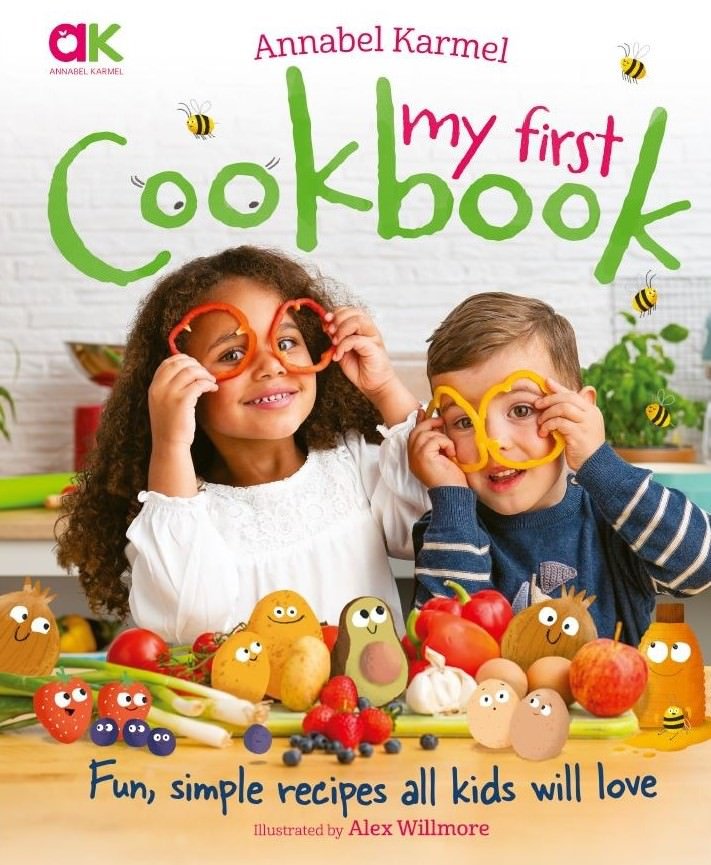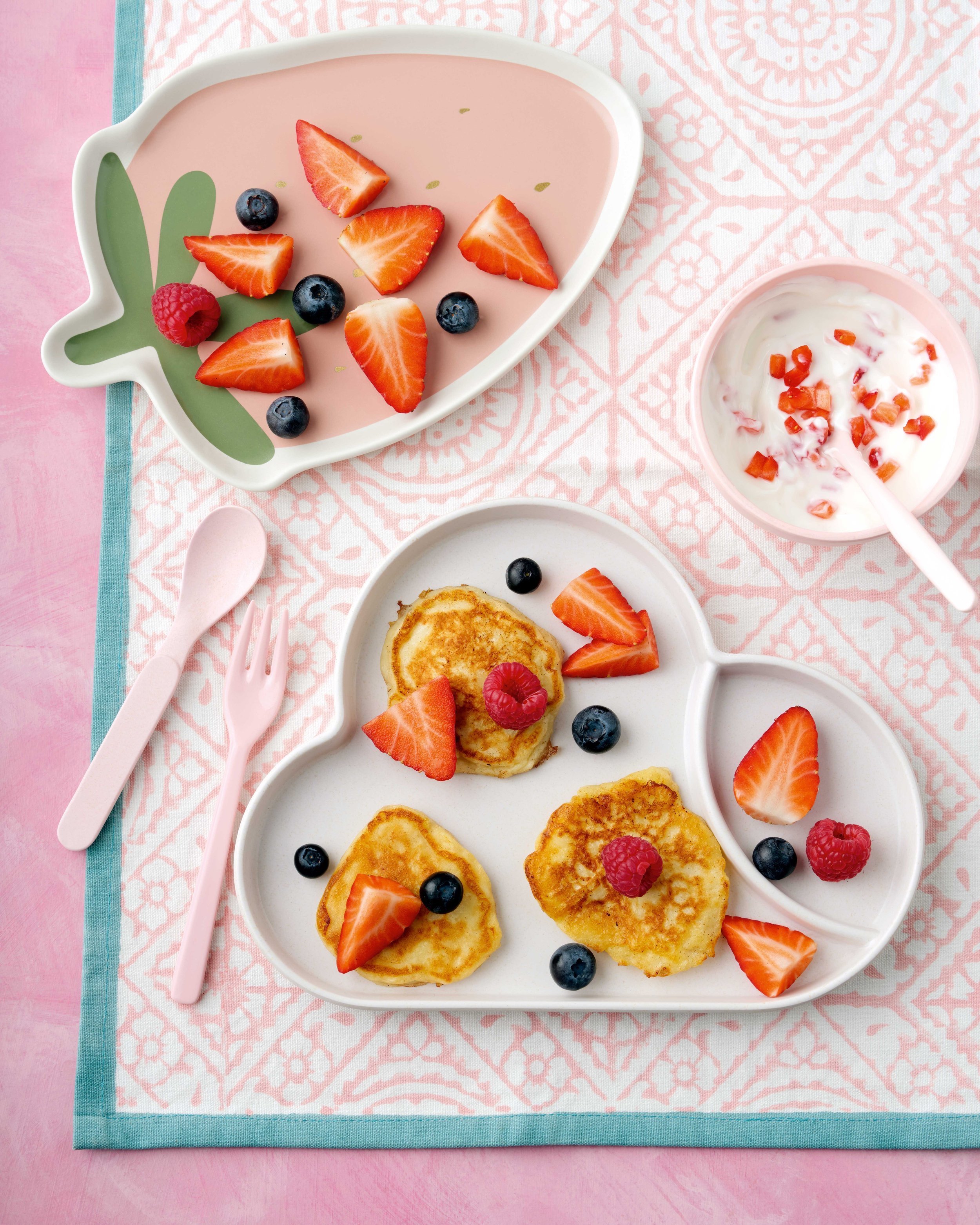What’s Cooking Kids? By Annabel Karmel
Children of all ages can benefit from spending time in the kitchen. Whether it’s mixing, mashing, stirring or rolling, there are lots of simple tasks for tiny hands.
Cooking time is bonding time and can be a lovely way of spending some quality time together as a family. Spending time in the kitchen can also build self-esteem; when little ones can say, “I made it myself” they feel a sense of accomplishment. Plus, they are more likely to eat something, or at least try it when they’ve helped to prepare it themselves. Cooking can also be a great way of improving their reading and maths skills whilst enjoying the “fruits” of their labour.
So how can you have a cracking time in the kitchen?
Keep it simple
Children (especially toddlers) have short attention spans, so start with recipes that are extra easy and provide a result reasonably quickly.
The classic fairy cakes and cookies are an obligatory early introduction to cooking for any child but you can also introduce a few healthier, but equally fun foodie choices. Why not put a spring spin on their lunchtime meal with my Caterpillar Sandwiches? Children will love cutting out sandwich shapes and adding the caterpillar’s features. Muffins, mini energy balls or frittatas are also great starting points.
Here are some top cook-along tasks for the under 5s:
Decorate biscuits, cakes and muffins
Top wraps, open sandwiches or pizzas
Stamp out fruit shapes
Knead dough
Measure and weigh ingredients
Line baking sheets with tinfoil or parchment paper
Stir mixtures
Pour batter into muffin tins
Wash vegetables or dirty bowls
Turn small kitchen appliances on and off (toaster oven, food processer, blender)
Food art
Unleash their inner Picasso by getting creative with their edible masterpieces. Task them with creating animal faces on their bowl of morning porridge, with lots of healthy cut up fruit, or my Teddy Bear Tomato Pasta is the ultimate mid-week winner dinner!
Kitchen trivia
Why not try a bit of food trivia by playing a game and blindfold each child before introducing a food and ask them to guess what it is. Giving them facts is likely to make them more interested about what they are eating. Give them hints with a fun twist e.g. if carrots are part of your trivia game you could give them a hint of ‘this is bunny’s favourite snack’. Or some chopped up tomatoes could be ‘Am I vegetable or a fruit?’ Or for broccoli ‘I’m green and look like a mini tree, who am I?’ Making trying new foods fun will work wonders.
Offer them the cooking power hour!
Have a shelf with some colourful cookbooks or find some inspiring recipe websites to scroll through with them. Ask your child to pick a few recipes that they like the look of and sound of. Kids are more likely to try something new if they see a picture that looks good to them. Also, by allowing your child to select recipes, they will gain a sense of empowerment from helping you plan a meal and begin to understand the cooking prep and process.
My ethos is that we as parents need to help give our children a positive relationship with food, and that means letting them help out in the kitchen. Yes it be might be messy, or chaotic and their enthusiasm might disappear half way through a recipe, but believe me they’ll always be back to eat the goods at the end!
Annabel Karmel’s My First Cookbook
Inspire a lifelong love of food and cooking.
The perfect introduction to cooking for your little kitchen helpers, My First Cookbook published by Welbeck is out NOW! https://geni.us/MyFirstCookBook
Or you can visit www.annabelkarmel.com for more information.






